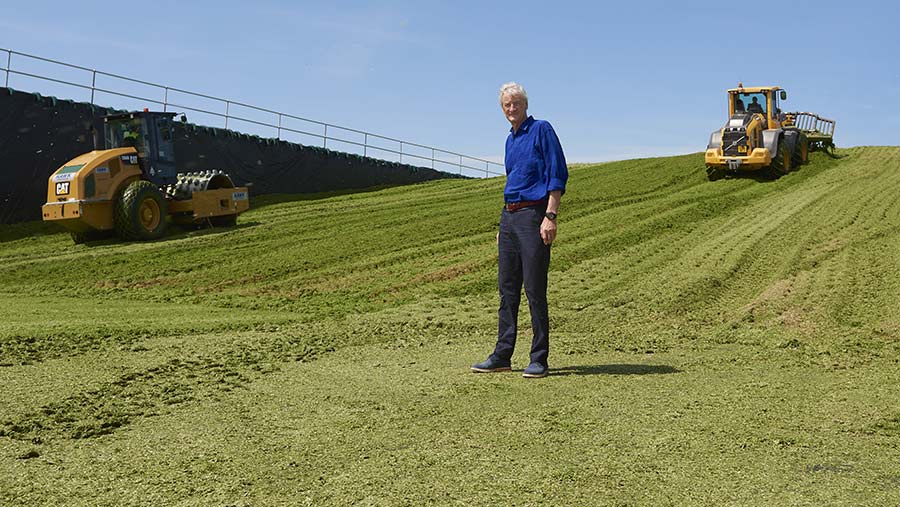Farmers and consumers are losers in skewed market, says Dyson
 © Tina Hillier
© Tina Hillier Britain’s biggest farmer, Sir James Dyson, has warned that consumers and farmers are both losing out in a market that is “fundamentally skewed”.
The entrepreneur said it is retailers who reap the benefits and his focus will now be on selling direct to the consumer to try and fix a disconnect with the industry.
Reducing reliance on subsidies as Brexit looms is another priority for Sir James’s farming business, which now owns more than 14,000ha of farmland in the UK and employs 169 people.
See also: Beeswax Dyson moves into research ahead of Brexit uncertainty
Sir James wrote on his website: “For each pound you spend on a packet of peas or potatoes, the retailer gets about 70p; while the farmer – who bears all the risk with weather, and all the investment in machinery – gets just 8p.”
The 73-year-old said sustainable food production and food security are vital to the country’s health and economy and there is a “real opportunity for agriculture to drive a revolution in technology and vice versa”.
“Farming is not a cottage-industry, or something quaint and nostalgic; efficient, high-technology agriculture holds many of the keys to our future.” James Dyson. Learn more about our farms here. https://t.co/g8zXOSzaBs
— Dyson (@Dyson) September 19, 2020
He added: “I’m excited about the future of agriculture, despite the undoubtedly significant challenges that the sector faces.
“In recent years, we have been investing heavily in getting the basics right – soil quality, infrastructure, new technology and stewardship.
“Now we are turning our attention to making the farms work as a business, making them profitable, moving away from subsidies and providing food and energy for consumers.”
He also rather intriguingly mentions a future link between his farming production and Dyson products.
“We can begin to use agricultural materials in our products. I can’t tell you how, but we can already see the way, and that will be interesting.” – James Dyson.
— Dyson (@Dyson) September 19, 2020
Farmers Weekly’s #FeedTheNation campaign has highlighted the success stories of farmers selling from the farmgate direct to consumers.
Many have added value to their product, in particular the dairy sector through milk vending machines, where the profit margins are significantly higher compared to selling to a processor.
